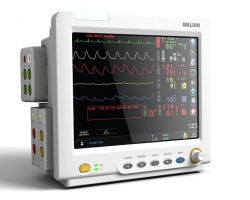Wechat QR code

TEL:400-654-1200

TEL:400-654-1200

The "experienced" sales of home medical devices refer to the free use of medical device manufacturers or distributors to provide short-term use of unspecified objects to sales personnel who produce or manage medical devices at unspecified locations. With the attraction of this model, many consumers are paying high prices for products. What are the risks associated with "experiential" sales of home medical devices? How to strengthen the supervision of this sales model?
As we all know, medical devices are closely related to human health, and there are strict requirements for engaging in medical device business activities. We must have business premises and storage conditions that are compatible with the scale and scope of business operations, as well as the quality management system that is compatible with the medical devices that we operate. Quality management agencies or personnel; engaged in the operation of the second and third categories of medical devices should also obtain a license qualification.
Due to the high qualification requirements for applying for medical device business licenses, some enterprises have turned to medical services for free experience in townships, rural areas, and communities, or set up service departments that use so-called health consulting lectures to avoid medical device operations. Allow this pass. In fact, the service department set up to promote the sale of medical devices is temporary. It often “plays a shot for a place”, which makes it difficult to supervise the operation of medical devices.
"Experiential" sales are a positive way of selling goods, such as car test drives, but not all products are applicable. As medical devices directly related to health, there are scope of application, contraindications, precautions, and other content requiring warnings or prompts, and some also require special storage conditions and methods, which require operators to have certain medical devices. Expertise. However, "experiential" sales often fail to meet these requirements. First, recruiters who provide experience activities are generally not subject to rigorous training and assessments. They cannot make professional judgments on problems that may occur during the medical device experience. They may delay proper treatment or cause adverse events because they do not avoid contraindications. occur. Second, "experienced" salespeople often exaggerate the effectiveness of the medical devices they provide. Even symptomatic treatment, if over-reliance on the role of home medical devices, can sometimes lead to delays. Third, because providers of free experiences do not have the qualifications of medical institutions, they will not follow the general rules that medical institutions should follow when they treat patients, such as records of medical records. Once a dispute arises, consumers will have difficulty defending their rights.
The author believes that for the “free experience” in the business process of medical devices, although the current laws and regulations do not contain prohibitive clauses, they should strictly abide by relevant regulations and strengthen supervision. The promotion of medical device products shall be carried out within the scope of approval. If there is any violation of the regulations governing the examination and approval of medical device advertisements, it shall promptly investigate with the relevant departments.
For the regulatory measures for the sale of "experienced" home medical devices, the author has the following suggestions for brain function.
First, the regulatory authorities should increase the study and research on experiential marketing supervision, and clarify the direction of supervision and supervision measures. Take the initiative to conduct on-site supervision of individuals and organizations that sell "experienced" home medical devices, and ask operators to post or present product registration certificates and instructional approval documents at the scene. At the same time, with reference to the relevant regulations for the operation of medical devices, the operators are required to establish their own account books, and they must not exaggerate the illegal activities of propagating their curative effects and arbitrarily reducing operating conditions. The act of selling unlicensed products and unlicensed products must be punished severely according to law. At the same time, the supervision department should combine market inspections, consumer rights protection, and adopt a day-to-day supervision mechanism of “pilot-based, punishment-assisted” to understand and intervene in advance for potential violations of “experiential” home medical device sales. Contain illegal activities in the bud.

The second is to increase the publicity of law and promote the "Regulations on the Supervision and Management of Medical Devices" and the "Measures for the Supervision and Administration of the Operation of Medical Devices" and other laws and regulations for consumers, especially the middle-aged and elderly consumers. At the same time, to remind consumers to purchase medical devices, they must look at the official product description, the operator's "medical equipment business license" and other proof materials, request a traceable sales paper that can reflect the product information, to enhance consumption The self-defense, take the initiative to identify the awareness, and guide them to use legal weapons to safeguard their legitimate rights and interests.
The third is to make clear regulations on the establishment conditions, establishment environment, personnel quality, after-sales service, and law enforcement supervision duties of “experiential” home medical device sales organizations and individuals from the legal and regulatory level, in order to standardize business practices and promote “experiential "The sales model of home medical equipment is developing healthily. Exploring the formulation of relevant judicial interpretations and guidance documents on the basis of the basic principles of legislation and existing laws and regulations, clarifying market access, market supervision, and illegal liability systems, and clarifying the powers and responsibilities of supervision and legal responsibilities.